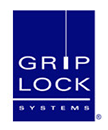Industry News
Residential Lighting Design Guide Available From The National Lighting Bureau
March 07, 2012
The comprehensive Residential Lighting Design Guide is now available free from the National Lighting Bureau. Developed by the UC Davis California Lighting Technology Center (CLTC), the Guide is a resource of best practices and lighting designs applicable nationwide. It provides a technology overview of high-efficacy luminaires, switching controls, sensors, and dimmers and also includes diagrams of several spaces found in typical U.S. homes.
CLTC created the guide to help builders, energy auditors, and lighting designers comply with new elements of California’s recently updated Title 24 Building Energy Efficiency Standards. Part 6 of the standards addresses residential lighting for new and remodeled homes. Complying with the standards – which is mandatory – significantly reduces lighting-energy consumption by requiring reliance on new energy-efficient technologies.
According to NLB Chair Howard P. Lewis (Lighting Alternatives, Inc.), “The Guide identifies the many different alternatives available for lowering energy consumption and utility costs. Achieving home lighting energy-efficiency is mandatory in California. Common sense alone makes it highly desirable everywhere else….Those purchasing a home can use the Guide to evaluate its lighting. They can also use it to obtain some really good guidance when they are remodeling.” Mr. Lewis represents the Illuminating Engineering Society of North America (IES) on the Bureau’s board of directors.
Obtain a PDF copy of the Residential Lighting Design Guide at http://www.nlb.org/index.cfm?cdid=10863&pid=10225. The National Lighting Bureau recommends that homeowners and others rely on professional lighting-system designers to obtain the maximum “bang for the buck” from lighting. A nationwide listing of lighting-system designers is available at www.nlb.org.
The US Davis California Lighting Technology Center (CLTC) is a research and education facility advancing energy-efficient lighting and daylighting technologies through research and development, demonstration, outreach, and education. The Center works in partnership with utilities, manufacturers, end users, builders, designers, and governmental agencies.
The National Lighting Bureau is an independent, not-for-profit, lighting information source established in 1976. For more information about the Bureau, visit the Bureau’s website (www.nlb.org) or contact Bureau staff at [email protected] or 301-587-9572.









































